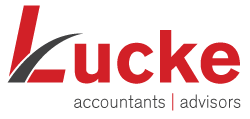Operating a business as an S corporation may provide advantages, including limited liability and no double taxation (at least at the federal level). Self-employed people may also be able to lower their exposure to Social Security and Medicare taxes. But not all businesses are eligible and, with tax law changes, S corps may not be as appealing as they once were. Double taxation may be less of a concern due to the 21% flat income tax rate that now applies to C corporations, while the top individual rate is 37%. On the other hand, S corp owners may benefit from the new qualified business income (QBI) deduction, which can equal as much as 20% of QBI. Contact us for more information.

Author: Jeff Lucke
Jeff Lucke, CPA, is the founder of Lucke & Associates, with an entrepreneurial background. Jeff has had ownership interests in businesses within several industries including automotive, construction, healthcare, telecommunications, and restaurants, as well as being active in real estate. As an owner of a growing CPA firm and other businesses, he has gained unique insights into the challenges and issues that face other growing businesses that most other CPAs do not have. This kind of knowledge ultimately benefits every one of the firm’s clients. He is very involved with clients and becomes deeply involved in their businesses and helping them succeed. Jeff is a graduate of the University of Nebraska and holds a Bachelor of Science in Accounting; his professional affiliations include the AICPA and KSCPA. Jeff currently serves a board member for his community on the Construction Financial Managers Association, the American Diabetes Association, and Big Brothers Big Sisters.






